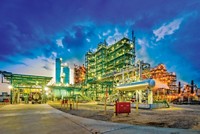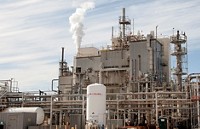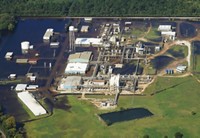Advertisement
Grab your lab coat. Let's get started
Welcome!
Welcome!
Create an account below to get 6 C&EN articles per month, receive newsletters and more - all free.
It seems this is your first time logging in online. Please enter the following information to continue.
As an ACS member you automatically get access to this site. All we need is few more details to create your reading experience.
Not you? Sign in with a different account.
Not you? Sign in with a different account.
ERROR 1
ERROR 1
ERROR 2
ERROR 2
ERROR 2
ERROR 2
ERROR 2
Password and Confirm password must match.
If you have an ACS member number, please enter it here so we can link this account to your membership. (optional)
ERROR 2
ACS values your privacy. By submitting your information, you are gaining access to C&EN and subscribing to our weekly newsletter. We use the information you provide to make your reading experience better, and we will never sell your data to third party members.
Safety
Texas flood shows need for chemical safety rule, advocates say
Activists point to fires at Arkema plant
by Jeff Johnson, special to C&EN
September 7, 2017
| A version of this story appeared in
Volume 95, Issue 36

Industrial safety advocates and Texas residents say a flood-related accident and fires at the Arkema chemical plant in Crosby, Texas, underscores the need for a stalled worker and community safety regulation.
Issued by the Obama Administration in January and blocked by the Trump Environmental Protection Agency in March, that regulation would require chemical safety improvements at industrial plants.
If fully implemented, the new regulation would require greater public disclosure from companies that use large amounts of toxic chemicals, notes Yvette Arellano, spokesperson with TEJAS, the Texas Environmental Justice Advocacy Services, a community-based nonprofit. The rule would also call for companies to conduct root-cause analysis after an accident, she adds.
When it postponed the regulation, EPA reopened discussions of what the final rule should require. This reexamination won’t be complete until February 2019, EPA Administrator Scott Pruitt has said.
Pruitt attributed the delay to opposition to the rule from companies. Among them is Arkema, which filed comments against the regulation. Several states, labor unions, and community groups are challenging EPA’s move in court. Chemical companies and some states, on the other hand, are backing Pruitt.
Advocates say the rule, if implemented, would have a made a difference when Tropical Storm Harvey brought heavy rains that flooded the Crosby plant and killed backup electricity generators used to maintain refrigeration of some 225 metric tons of organic peroxides at the facility. The reactive peroxides decompose with heat, and at Arkema, they begin to burn. Eventually, the facility’s managers ordered fire set to the remaining stock of these substances to limit the possibility of explosion.
If the regulation had been in place, says Gretchen Goldman, a research director at the Union of Concerned Scientists, the public and emergency responders would have had more information about Arkema’s substances. Also, the regulation would have required the company to investigate and possibly implement safer alternatives to its current chemicals and manufacturing approaches, she adds.
As required under the Clean Air Act, Arkema filed a risk management plan with EPA that identifies the potential effects of a chemical accident, identifies steps the facility is taking to prevent an accident, and spells out emergency response procedures should an accident occur. The plan is required for companies that handle certain extremely hazardous chemicals and is to be updated every five years. Arkema did not consider the decomposition of the organic peroxides in its plan because these chemicals are not covered by risk management plans. The U.S. Chemical Safety & Hazard Investigation Board (CSB) since 2002 has recommended that EPA require companies to include peroxides and other reactive chemicals in risk management plans, but the agency has not complied.
CSB is investigating the Arkema accident.
At a Sept. 4 briefing, Rich Rowe, president and CEO of Arkema’s U.S. operations, was reluctant to discuss what the company could have done differently to avoid the accident. He said Arkema will examine “the way we prepared and the decisions we made as we moved through the crisis.” He pledged to work with CSB “to assess what went well and what didn’t.”





Join the conversation
Contact the reporter
Submit a Letter to the Editor for publication
Engage with us on Twitter